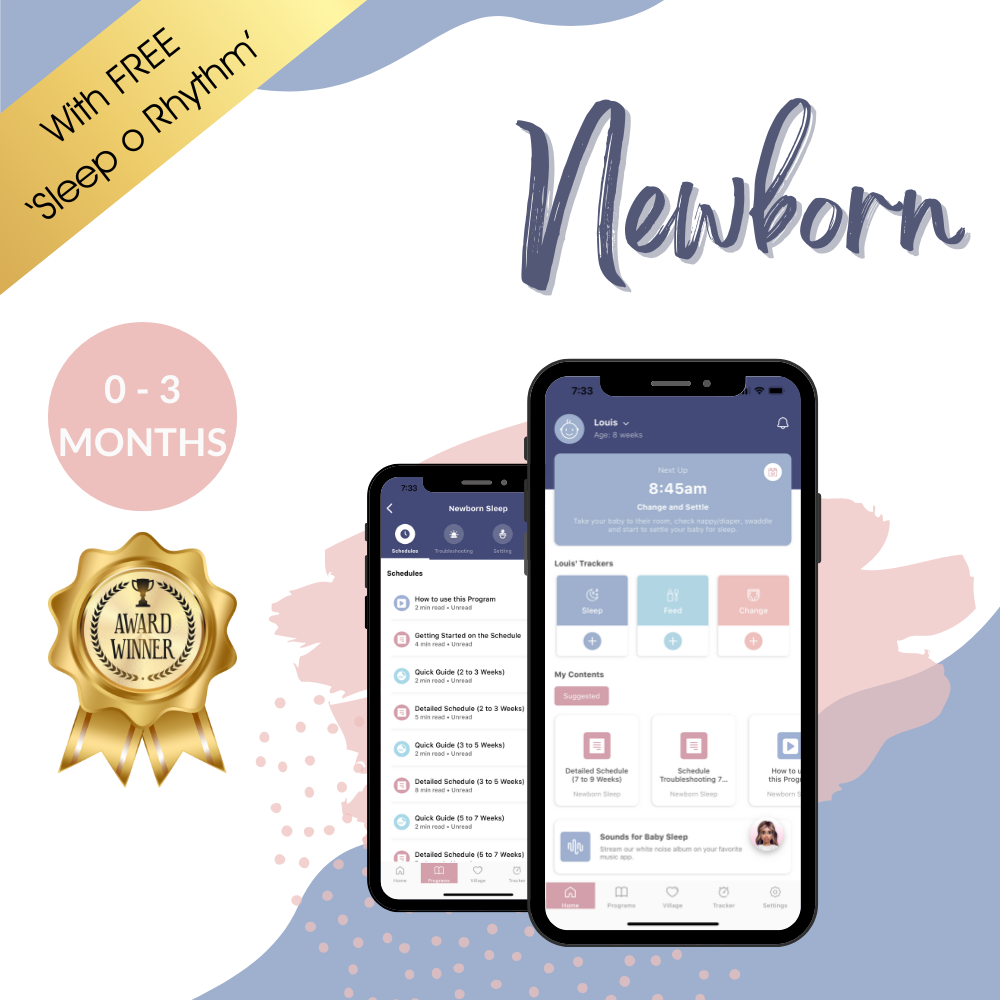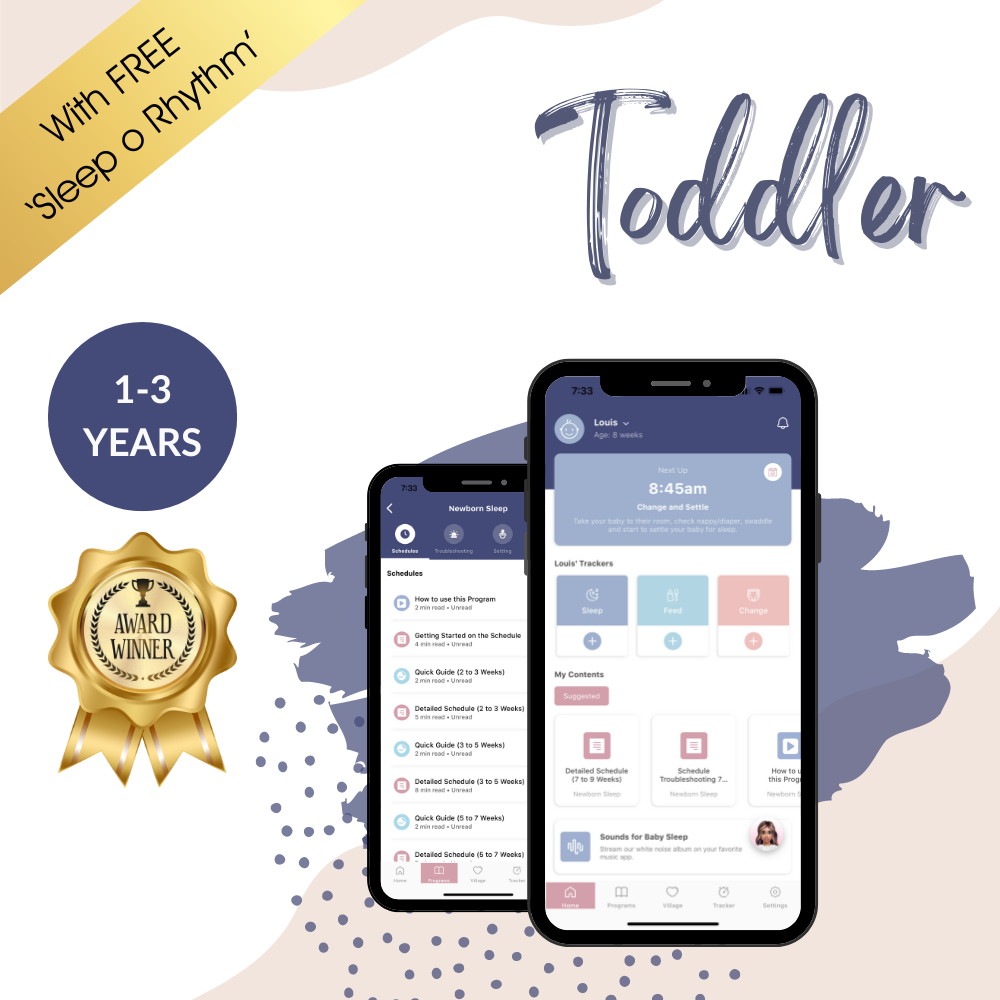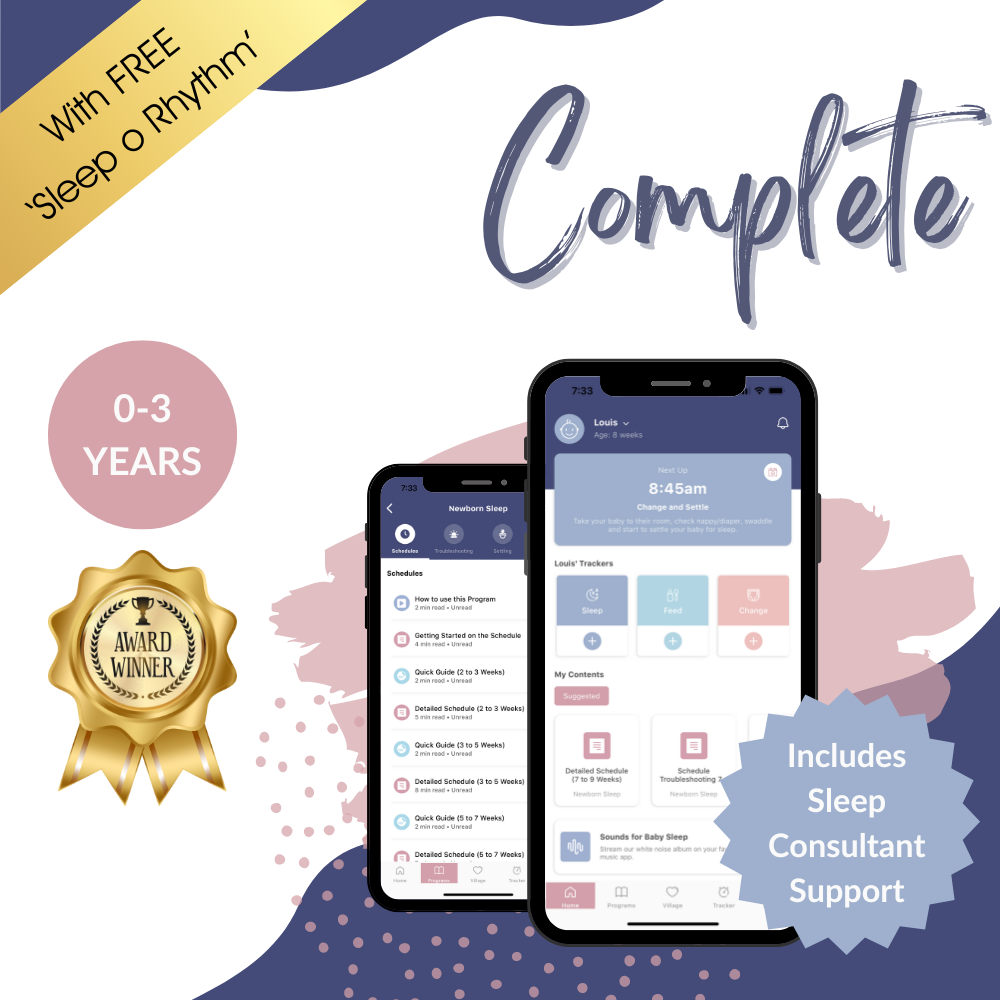
How to Keep Up With Your Baby’s Sleep Development
The trap that a lot of parents fall into is not realising how quickly a baby's sleep needs change. Baby sleep is an ever-changing, really bumpy road and it can be so hard to keep up!
It can be so easy too to unknowingly fall behind in your baby's sleep development and this can lead to real blips in your baby's sleep patterns, especially around times of nap transitions, sleep regressions, teething, sickness, growth spurts... These blips can mean new sleep habits creep in or we resort to thinking our babies are broken or need to be "sleep trained", but it is often a lot simpler than that.
It's just about keeping up with the game.
Newborn sleep and brain development
We all see the massive physiological growth a baby experiences throughout the first few years of their life - especially in the first year alone! Excellent books/apps like the Wonder Weeks help you follow this development. What we can't see during this time is the huge amount of neurological growth and maturation going on behind the scenes in your baby's brain. It can be very easy to forget about this side of things and continue to aim for sleep patterns that your baby might well have grown out of.
Baby sleep needs - 3-4 months
We see this a lot around 3 or 4 months of age. Babies at this point have come a long way from their newborn sleep days and yet some advice we've seen even suggests still aiming for newborn-style sleep rhythms, like only having an hour awake time between naps. These babies are then doing things like being extremely difficult to settle to sleep, only napping for short stints, waking a lot more overnight. It is not that their sleep has worsened, as such, it's just that their sleep needs have matured. It is not complicated to improve these sleep situations by simply resetting your sleep expectations to make them more age-appropriate.
"I didn't realise that my baby was actually under tired when I was putting him down! No wonder he never went to sleep! Why does no one tell you this? All you hear is that babies can only stay awake for very short times" - Sarah
Feeling confused about your baby's sleep needs?
Let our sleep experts help you every step of the way. Together we can solve your little one's sleep challenges
Get our Sleep Programs
Baby sleep needs at 8 months (regression)
Another example we commonly see is around the 8 and 12-18 month marks and this, unfortunately, coincides with a natural regression in your baby's sleep at these ages. By 8 months most babies are established in a fairly good nap routine, however it can be easy to get stuck thinking that your baby at 8 months old hasn't changed too much since 6 months old and this is where problems creep in... By 8 months your baby's daytime nap needs will have reduced since they were 6 months old and they really ought to have transitioned down to 2 naps a day.
Baby sleep needs at 12 months (regression)
Similarly, beyond 12 months when your baby starts the transition to 1 nap a day, this can be met with symptoms of a sleep regression while we try and maintain the status quo rather than make any changes. In an attempt to hold onto decent napping, many parents are reluctant to change their baby's sleep times/lengths and this results in a baby who becomes very hard to get to sleep in the evening, wakes multiple times overnight and/or starts waking early in the morning. We inadvertently end up with worse nights because of our reluctance to alter the days!
Baby naps and night time sleep
The thing is, daytime sleep is the key to night time sleep. Every time. Napping is the one thing that affects night time sleep the most and so it is really important to be aiming for very age-appropriate nap routines. The nap timings and lengths in our Sleep Programs change ever so slightly every week for younger babies and every month for older ones. This is how delicate their sleep needs are! This is how quickly your baby's brain is developing.
We've found that to avoid big periods of readjustment or experiencing really hard-hitting sleep regressions, constantly tweaking and refining your baby's napping as they grow is the best defence. Your baby won't stop growing and developing at a consistent rate, so why would their sleep needs not also change as consistently?
Using sleep programmes to track your baby’s needs
Keeping up with your baby's sleep development means really knowing what you're up against, every transition, every leap, every day, every stage, every step of the way... and that's what our comprehensive Sleep Programs can offer you in spades!
"Little Ones™ has helped me to understand how my daughter's body works with regard to sleep and awake times... my baby is well rested and so much happier that she is in a good routine. Definitely worth every penny!" - Lisa
------------
Bibliography
- Tham, Elaine Kh et al. “Infant sleep and its relation with cognition and growth: a narrative review.” Nature and science of sleep vol. 9 135-149. 15 May. 2017, doi:10.2147/NSS.S125992
- Children and Sleep, The National Sleep Foundation

Receive product and services updates, promotional offers and other marketing communications based.





